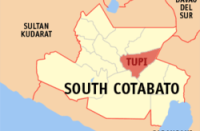(Eagle News)– The exceptions to President Rodrigo Duterte’s Executive Order (EO) 2 ratifying freedom of information (FOI) in the executive branch has slimmed down from 166 to nine as it takes effect on Friday.
“We adapted the best practices of other countries which categorized and grouped several exceptions into major categories…The Philippines under EO 2 will have nine exceptions,” Assistant Secretary Kristian Ablan of the Presidential Communications Office (PCO) said in a press conference Thursday (November 24).
A draft of the FOI Manual released in August showed 158 exceptions to FOI and six for other exceptions.
On Friday (November 25), all government agencies under the executive branch should have their own FOI manual and implementing details.
Earlier in July, concerned government agencies were given 120 days to comply with the need to come up with a manual.
Under the EO, government agencies are given 15 working days to comply with FOI requests. The period to respond may be extended to 20 working days whenever the information requested requires extensive search and examination of records.
Ablan said officials of agencies which do not comply with the EO will face administrative sanctions.
The remaining FOI exceptions are the following:
- Information covered by Executive privilege;
- Privileged information relating to national security, defense or international relations;
- Information concerning law enforcement and protection of public and personal safety;
- Information deemed confidential for the protection of the privacy of persons and certain individuals such as minors, victims or crimes, or the accused;
- Information, documents or records known by reason of official capacity and are deemed as confidential, including those submitted or disclosed by entities to government agencies, tribunals, boards, or officers, in relation to the performance of their functions, or to inquiries or investigation conducted by them in the exercise of their administrative, regulatory or quasi-judicial powers;
- Prejudicial premature disclosure;
- Records of proceedings or information from proceedings which, pursuant to law or relevant rules and regulations, are treated as confidential or privileged;
- Matters considered confidential under banking and finance laws, and their amendatory laws; and
- Other exceptions to the right to information under laws, jurisprudence, rules and regulations.
Ablan said the Executive Secretary will issue a memorandum circular detailing specific instances that fall under each category.
An electronic-FOI facility was launched in Malacañang Thursday afternoon.
Still in beta version, requests can be filed online via www.foi.gov.ph, but only 15 agencies can be accessed.
Ablan said Malacañang is hopeful that Congress will soon be able to pass the FOI bill.
“Hopefully, we will be able to convince our legislators to pass an FOI act because, as you know, an executive order cannot pass above higher than law,” he said.







